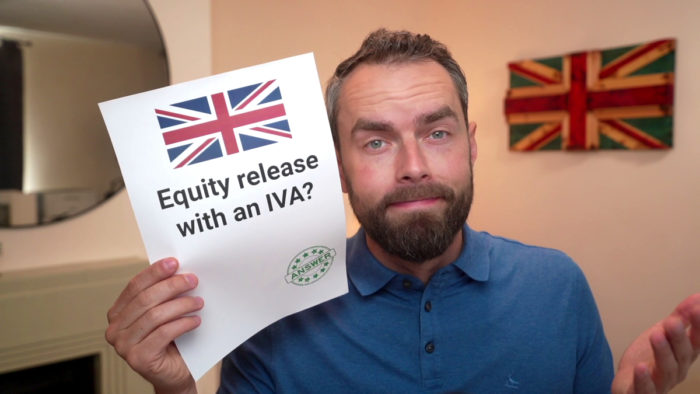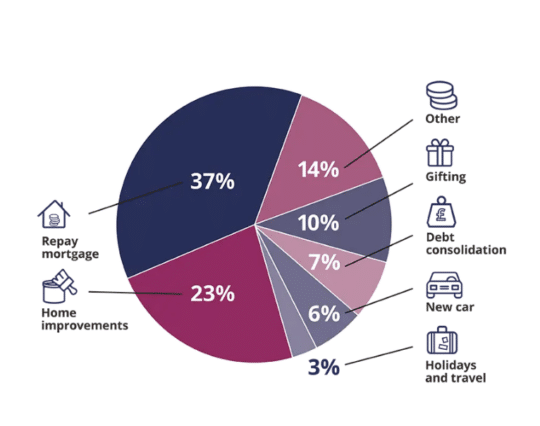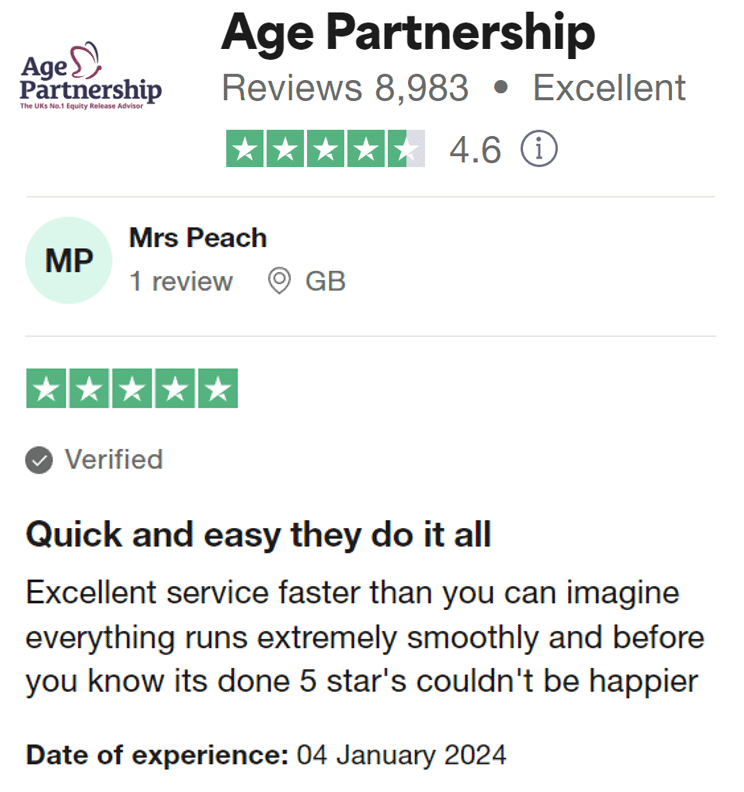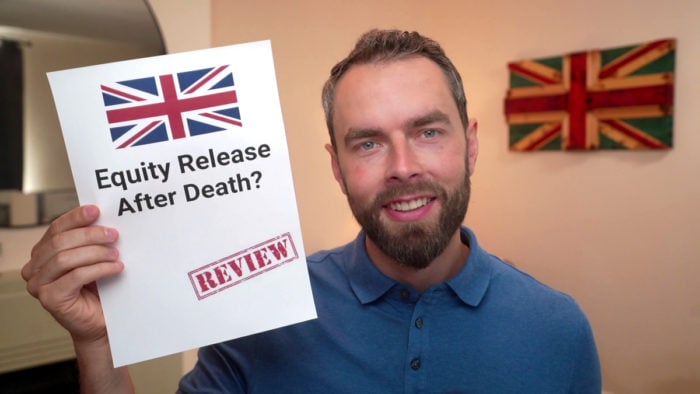Can I Get Equity Release with an IVA? FAQs & Tips
Our preferred equity release adviser is Age Partnership. For free and impartial money advice you can visit MoneyHelper.

Our preferred equity release adviser is Age Partnership. For free and impartial money advice you can visit MoneyHelper.
Are you trying to understand equity release with an Individual Voluntary Arrangement (IVA)? Welcome, you’ve found the right place for answers – we’ll help you make sense of these rules. With over 7,000 people trusting our advice each month, you can be sure you’re getting accurate information. Here’s what you’ll learn today:
- What equity release is and how it works.
- The risk to your home’s equity.
- Details about lifetime mortgages and home reversion plans.
- Information about the equity release clause in an IVA.
- How to manage the ‘equity clause’ in your IVA.
We know that the process of equity release might seem confusing. It’s a big decision, and there’s a lot to think about. But don’t worry, we’re here to help. We’ve guided many people through this process, and we can guide you too while navigating the complex world of IVAs and equity release.
Let’s dive in.
What is an Individual Voluntary Arrangement?
An Individual Voluntary Arrangement (IVA) is a legally binding agreement between a debtor and their creditors to make repayments as stipulated in the agreement. The use of an IVA is reserved for people with multiple creditors and significant arrears.
They are only available in England and Wales – Scotland does have an equivalent debt solution – and usually last between five and six years. Once an IVA term ends, all remaining debt is written off.
What is the clause and what does it state?
Home equity is the value of the home you own outright. For example, if you own a £200,000 home with an outstanding £125,000 mortgage, you have £75,000 in home equity. This equity is seen as an asset by creditors and is also considered an asset within an IVA.
This is why many IVAs have an ‘equity release clause’ within the debt solution agreement. An equity release clause will state that the debtor is required to use some of their equity (i.e. an asset) to repay some of the debt owed to creditors listed within the IVA.
This will require the debtor to ask to borrow against their home equity. If there are fees associated with setting up the new loan then these fees are also reduced from the debt within the IVA.
How equity release could help
More than 2 million people have used Age Partnership to release equity since 2004.
How your money is up to you, but here’s what their customers do…
Find out how much equity you could release by clicking the button below.
In partnership with Age Partnership.
When do I need to deal with it?
The equity release clause only comes into effect near the end of your IVA term. You will be contacted around six months before the IVA ends.
The IVA provider will first ask you to collect information, namely:
- An official valuation of your property by asking a local estate agent.
- Evidence of your current mortgage debt
- Evidence of any other debts secured by your home or home equity.
This information will be used to work out how much equity you have in the property.
How much can be released?
You can only be asked to try and release 85% of the equity you have. So if you have £100,000 equity in your £200,000 property, you can only be asked to release £85,000 at most. If the property is jointly owned with a joint mortgage, the sole debtor can only be asked to release 85% of their share only.
Interestingly, if you have less than £5,000 equity in the property the IVA provider and lenders will not make you pursue releasing equity as a way to pay back some of your debts.
Join thousands of others who release equity
Age Partnership have helped over 2 million people release equity from their home.

Mrs Wareham
“I am more than pleased to have taken out Equity Release with Age Partnership.”
Reviews shown are for Age Partnership. Search powered by Age Partnership.
Can I do it with an active agreement?
Even though you do not have to make repayments when taking out a lifetime mortgage or home reversion plan, the lender will still check your credit file for unpaid debts, CCJs and active IVAs.
If you have an IVA, It is highly unlikely that you will be able to use an equity release plan to loan money as a senior and satisfy the equity release clause.
However, once your plan is finished and you have a clean bill of financial health, you will be able to use equity release if applicable.
You might not be able to get a secured loan or other credit that requires monthly repayments immediately because your credit score will still be very low and the IVA will show on your file.
» TAKE ACTION NOW: Find out how much equity you could release
Do I have to remortgage at the end?
Remortgaging and asking to borrow more against your equity is a possible solution to releasing equity and satisfying the equity release clause. However, many mortgage lenders will be reluctant to lend you money after having and still having an IVA.
Can I get a secured loan?
Another way of borrowing against your home equity is with a home equity loan. But again, lenders are unlikely to lend to someone with an active IVA and previous debt problems.
Dispute the unlikeliness of accessing a secured loan against your equity, you must still try as per the conditions of your IVA.
What if I can’t release the full amount required?
If you fail to release equity or fail to release the amount of equity required to repay your IVA creditors, you may be asked to do something else to repay some of your debts. You may be asked:
- To get friends or family to make a lump sum payment into your IVA. The payment will usually need to be 85% of your share of home equity, which could be thousands of pounds.
- To extend your IVA and monthly repayment for 12 months. This is what transforms most five-year IVAs into a six-year IVA.
Can I sell my house afterward?
You can sell your home after an IVA has ended. The amount you receive from the sale may be less because the equity in your property will have been reduced by sufficing the equity release clause and any existing residential mortgage debt.
Quick recap!
IVA equity release is a clause within an IVA agreement within six months of its primary end date that asks the debtor to release equity above £5,000 to repay some of the debt to creditors – before the remainder gets wiped. Homeowners might consider using an equity release plan, remortgaging to borrow more, or a home equity loan to suffice this clause. However, borrowing while on an IVA can be difficult and you can be denied further credit.
If you cannot suffice the equity release clause, you will be asked to extend your IVA by 12 months instead.


